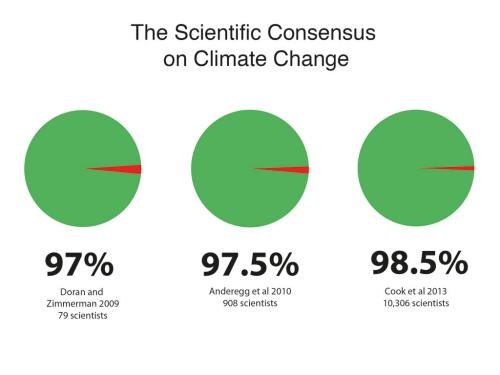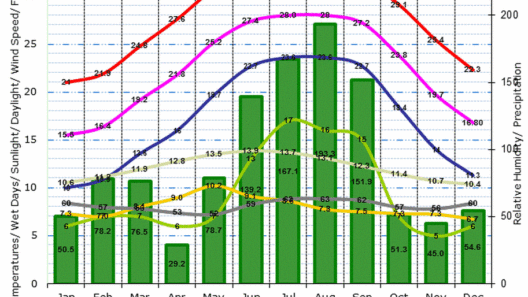The climate debate often spirals into a vortex of conflicting opinions and data misinterpretation, leaving many to wonder: do climate scientists actually agree on climate change? To date, the unequivocal answer is yes — and this consensus is overwhelmingly supported by empirical evidence. However, this doesn’t deter skeptics from posing challenges to the narrative. The claims are plentiful and the questions incessant, particularly surrounding the figure often heralded as the hallmark of this agreement: the renowned 97% consensus.
To lay the foundation, it’s crucial to clarify what this 97% consensus entails. Research studies, particularly those spearheaded by rigorous teams of climate scientists, have scrutinized numerous published papers on climate change. What they discovered is compelling: about 97% of climate scientists who have actively engaged in research agree that climate change is real and significantly driven by human activities. This striking figure arises from a series of meta-studies that amalgamated data from thousands of peer-reviewed articles.
But why the number 97? Isn’t it just a statistical fancy? Perhaps a playful way to assert dominance in scientific circles? Critics often seize this statistic to reduce it to mere rhetoric, citing a perceived array of uncertainties in the parameters of climate science itself. They question the validity of the sample size, the criteria for selection of studies, and the frameworks used to classify agreement. This skepticism underlines a innate human inclination to challenge established knowledge when it appears too fortuitous or neatly packaged.
Yet, those who invoke skepticism typically overlook the robustness of the scientific method itself. Each agreement cited has survived scrutiny through rigorous peer review processes, which has been the backbone of scientific inquiry for centuries. Thus, when faced with the overwhelming majority supporting the anthropogenic climate change narrative, one must ponder: Why would the scientific community — which thrives on challenging norms and rebuffing misconceptions — uniformly endorse a position if substantial doubt remained?
Moreover, the consequences of undermining this consensus extend far beyond academic discourse. Policy implications hang in the balance, affecting climate action initiatives, funding for renewable energy, international agreements, and sociopolitical dynamics. Should a mere fringe of scientists — the dissenters — hold sway over a consensus that millions of lives depend on? Or rather, does the weight of widespread consensus mean more than the bifurcated arguments of a minority?
Addressing this challenge necessitates diving deeper into the profiles of the dissenting voices. The characteristics of the outlier scientists often reflect not just contrarian viewpoints, but also a conflation of scientific scrutiny with political ideologies. The data that suggests a minority dissent is typically isolated from the mainstream scientific discourse, creating a kind of echo chamber that thrives on controversy rather than constructive dialogue.
The implications of the 97% consensus must also be framed within the reality of climate science’s multifaceted nature. Climate change is not a monolithic phenomenon; it encompasses overflowing fields such as meteorology, oceanography, and environmental science. Each discipline pulls together distinct threads, weaving a tapestry that reveals the complexity of our relationship with the planet. While the consensus highlights agreement on the existence of human-caused climate change, scientists continue to engage in robust debates about the specifics — determining the seriousness, the velocity, and the ramifications of climate change manifests the true essence of scientific inquiry.
To further complicate matters, advocacy groups and skeptics bombard the public with misinformation, framing the consensus as a precarious proposition instead of a firm foundation. Terms like “climate cult” are thrown around, mischaracterizing scientists as zealots rather than dedicated scholars motivated by empirical evidence. This deliberate misrepresentation has pervasive societal ramifications, sowing seeds of doubt and further fracturing public trust in science.
Yet, one cannot ignore that skepticism, when rooted in substantive questioning rather than a reflexive dismissal of scientific authority, is a time-honored tradition. Acknowledging the need for robust debate, we must challenge ourselves to differentiate between skepticism within the realm of the scientific process and contrived denialism. Discursive skepticism can foster progression, while denialism threatens to derail meaningful action.
So then, the question remains: why should we take the 97% consensus seriously? Aside from the palpable alignment of scientists’ views, the climate crises facing humanity necessitate collective functionalities. This consensus can galvanize international movements, facilitate climate actions, and compel policy shifts towards sustainable development goals. The urgency is palpable; this is not merely an academic dialogue but a pressing call to humanity to thwart impending catastrophic consequences.
In conclusion, the real narrative is not whether or not scientists agree on climate change, but rather how best to leverage their collective expertise for the benefit of our planet. Science thrives on consensus-derived action, an imperative driven not just by a collective of scientists, but a shared responsibility to advocate for planetary integrity. Perhaps it’s time we focus less on the number and more on the discourse—fostering dialogue that respects science, nurtures understanding, and ultimately, champions actionable solutions.








